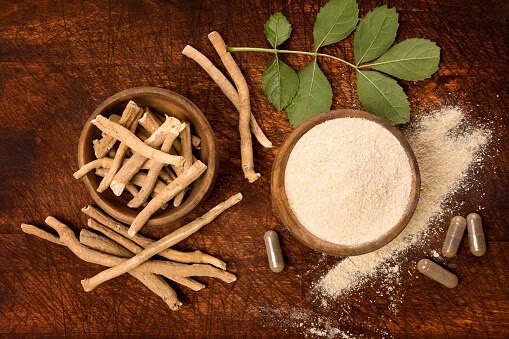In today's fast-paced world, more and more people are turning to natural remedies to support their health and well-being. One area that has gained significant attention is the use of medicinal herbs. These ancient botanicals have been used for centuries to address a wide range of health concerns. In this comprehensive article, we will delve into the world of medicinal herbs, exploring their benefits and how they can enhance our lives.
Table of Contents
1. Introduction
2. The Rich History of Medicinal Herbs
3. Understanding Medicinal Herbs
• What Are Medicinal Herbs?
• The Science Behind Herbal Medicine
4. Common Medicinal Herbs and Their Benefits
• Turmeric: Nature's Anti-Inflammatory
• Ginger: A Digestive Powerhouse
• Echinacea: Boosting Immunity
• Lavender: Stress Relief in a Bottle
5. How to Integrate Medicinal Herbs Into Your Life
• Herbal Teas and Infusions
• Herbal Supplements
• Cooking With Herbs
6. Safety Considerations
• Consulting With a Healthcare Professional
• Potential Interactions
7. The Future of Herbal Medicine
• Research and Innovation
• Cultivating Medicinal Herbs
8. Conclusion
9. Frequently Asked Questions (FAQs)
Introduction
Medicinal herbs have been used for millennia in various cultures around the world. These plants, with their natural compounds and healing properties, offer a holistic approach to health. In this article, we will embark on a journey to explore the profound benefits of medicinal herbs and how they can play a vital role in improving our overall well-being.
The Rich History of Medicinal Herbs
To truly understand the value of medicinal herbs, we must first appreciate their rich history. Throughout ancient civilizations, from Ayurveda in India to Traditional Chinese Medicine, herbs were central to healing practices. They were revered for their ability to address a wide array of health concerns.
Understanding Medicinal Herbs
What Are Medicinal Herbs?
Medicinal herbs are plants that are used for their therapeutic goods. These plants contain bioactive compounds that can positively impact our health. Unlike synthetic drugs, which often come with side effects, medicinal herbs offer a natural and gentle approach to healing.
The Science Behind Herbal Medicine
Modern science has begun to unravel the secrets of medicinal herbs. Researchers have identified various compounds in herbs that contribute to their healing properties. From antioxidants to anti-inflammatory agents, these compounds provide a scientific basis for herbal medicine.
Common Medicinal Herbs and Their Benefits
Turmeric: Nature's Anti-Inflammatory
Turmeric, with its active compound curcumin, is famous for its anti-inflammatory properties. It can help alleviate conditions such as arthritis and promote overall joint health.
Ginger: A Digestive Powerhouse
Ginger is a digestive aid that can soothe nausea, improve digestion, and reduce inflammation in the gastrointestinal tract.
Echinacea: Boosting Immunity
Echinacea is celebrated for its immune-boosting properties. It can help prevent and alleviate the common cold and other respiratory infections.
Lavender: Stress Relief in a Bottle
Lavender's calming and soothing effects make it a popular choice for reducing stress and anxiety. It's frequently used in aromatherapy and relaxation techniques.
How to Integrate Medicinal Herbs Into Your Life
Harnessing the benefits of medicinal herbs is easier than you might think. There are several ways to incorporate them into your daily routine.
Herbal Teas and Infusions
Brewing herbal teas and infusions is one of the simplest ways to enjoy the benefits of medicinal herbs. Whether it's a soothing chamomile tea before bed or a revitalizing peppermint infusion, herbal beverages can enhance your well-being.
Herbal Supplements
For those seeking a more concentrated dose of herbal goodness, supplements are available. These convenient capsules or tinctures allow you to target specific health concerns.
Cooking With Herbs
Incorporating herbs into your culinary endeavors not only adds flavor but also health benefits. Fresh herbs like basil, rosemary, and thyme can elevate the nutritional value of your meals.
Safety Considerations
While medicinal herbs offer numerous advantages, it's crucial to use them wisely.
Consulting With a Healthcare Professional
Before starting any herbal regimen, consult with a healthcare professional, especially if you have underlying health conditions or are taking medications.
Potential Interactions
Some herbs may interact with medications or have contraindications. It's essential to be aware of any potential interactions to ensure your safety.
The Future of Herbal Medicine
As interest in herbal medicine continues to grow, so does research and innovation in the field.
Research and Innovation
Ongoing scientific studies are uncovering new therapeutic uses for medicinal herbs, expanding our understanding of their potential.
Cultivating Medicinal Herbs
Many individuals are now cultivating their medicinal herb gardens, fostering sustainability and self-sufficiency in herbal remedies.
Conclusion
In conclusion, the world of medicinal herbs is a treasure trove of natural healing. From reducing inflammation to boosting immunity and promoting overall well-being, these herbs have much to offer. Incorporating them into your life can be a rewarding journey towards improved health.
Frequently Asked Questions (FAQs)
- Are there any side effects associated with using medicinal herbs?
- Can I grow medicinal herbs at home?
Yes, many medicinal herbs can be grown in your garden or even indoors in pots.
It's a satisfying and sustainable way to access fresh herbs.
- Do I need a prescription for herbal supplements?
- Are herbal teas as effective as supplements?
- Where can I find high-quality medicinal herbs and supplements?









0 Comments